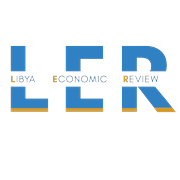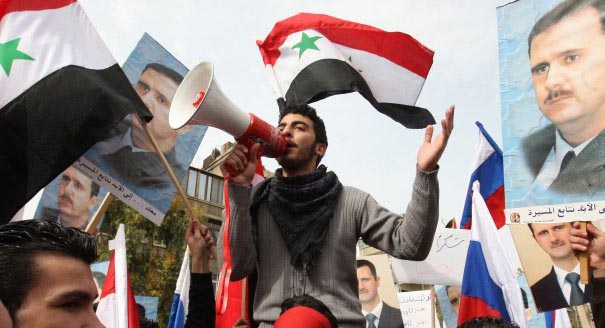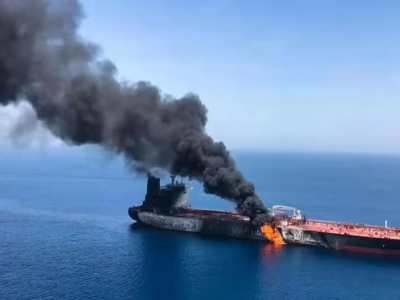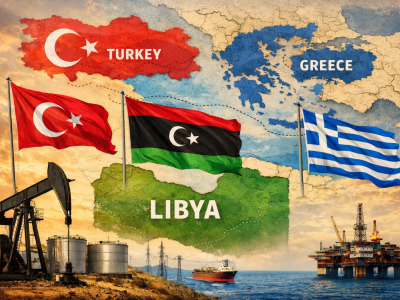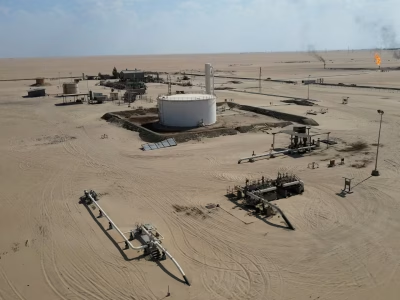For Libya, Syria is the Great Teacher
In the shadows of revolution, amid rubble and loss, the people of Syria have begun to rekindle something long buried: national dignity. More than a decade after the outbreak of the Syrian revolution, despite unimaginable suffering and continued challenges, Syrians have not only managed to regain a sense of their national identity – but more importantly, unity. They’ve proven that even in a fractured landscape of proxy wars and internal strife, a people can come together and push forward a vision for a better future.
Libya should be paying attention.
Since the fall of Muammar Gaddafi in 2011, Libya has found itself caught in a vortex of chaos: rival governments, shifting militias, foreign interference, and a fractured national identity. While the initial revolution brought a sense of liberation, it did not yield the sovereignty or unity so many had hoped for. Now, more than ever, Libya stands at a crossroads. And in Syria’s recent evolution – albeit controversial – there are lessons Libya can learn from.
A Revolution Reclaimed
Syria’s journey since 2011 has been brutal, and many of its scars are still raw. The devastation of civil war, the rise of extremist groups, and intervention from global powers turned the country into a chessboard for foreign interests. Sound familiar?
That all changed in 2024, however, as a popular movement saw the cruel and oppressive dictatorship of Bashar al-Assad overthrown. This new regime, led by Ahmed al-Sharaa (also known as Abu Mohammad al-Jolani) has brought about a degree of order, governance, and growing international engagement – but most crucially, unity.
Once viewed exclusively through the lens of militancy (and quite frankly, terrorism), Jolani’s leadership has evolved. Since their victory, his government has focused on stability, civil institutions, and international cooperation. The West has taken notice, as indicated but U.S. President Donald Trump’s openness to strengthening ties with Syria and removing sanctions. Jolani has also demonstrated willingness to work with the East, with an emphasis on Russia, claiming that maintaining relations with Moscow is of “strategic interest.”
Jolani may not be a saint, but his leadership rises well above any realistic alternative. Against the backdrop of blisteringly fast overthrow of Assad, Jolani has become a central figure that the international community can rally around in the name of pragmatism and hope. One could argue that’s what Libya lacks – a leader who can satisfy the internal desires of the nation while knowing how to be practical in terms of cooperating with the rest of the world.
While the entire Syrian conflict remains deeply complex – and with Jolani still needing to earn the trust of his country and the world – the ability of one nation to reposition itself has sent a powerful message: dignity and independence begin with internal cohesin and external engagement.
The Hope for Stability
Libya’s turmoil shares many parallels with Syria’s path: revolution followed by fragmentation, the rise of militias, and heavy foreign interference. Libya still has the opportunity to redirect its future before another generation is lost entirely to division and despair.
The continued division between the Government of National Unity in Tripoli and the rival Libyan National Army (LNA)-backed Government of National Stability in the east has hindered Libya’s ability to build stable institutions or attract lasting international investment. This fragmentation not only weakens Libya’s internal strength but also opens the door to greater foreign manipulation. Every faction that claims legitimacy does so at the expense of national cohesion – and every year of disunity digs the country deeper into instability.
Syria’s recent success illustrates that local governance, rooted in responsiveness to the needs of the people, can become a catalyst for national restoration. Even in Idlib – once filled with chaos – a charismatic leadership managed to implement functioning institutions, reduce intra-militia violence, and work with the outside world. This was the result of a shared vision that the people could unify around—get rid of a regime they saw as unjust and evil.
Libya must now ask: what is the shared vision that binds its people? What future can they agree on – not imposed from abroad, but generated from within?
The Power of a National Narrative
Syria and Libya, two Arab nations rich in natural resources and home to historic and proud populations, offer distinct lessons in conflict resolution. The key difference between fragmentation and unity lies in the story a nation chooses to tell itself. A people unified by good purpose – whether that be sovereignty, justice, or prosperity – can overcome entrenched divisions.
In Syria, despite the violence and suffering, a new narrative is emerging: one of resilience, independence, and dignity. The country’s transformation, though not without controversy, reflects a strategic understanding of this need for narrative control. He is not just waging war or governing by force; he is selling a vision of survival, pride, and possibility.
Libya, too, must begin telling itself a new story – not one of tribal loyalty or regional grievance, but of collective dignity and national restoration. That narrative must start with unity: between regions, between armed factions, and most importantly, between citizens who remember what the revolution was meant to achieve.
If Syria – a nation of over 20 million, marked by religious diversity and numerous ethnic groups – can emerge from civil war, then Libya, with 9 million people and a largely homogenous Sunni Arab population, must be capable of doing the same.
A Future Within Reach
Libya’s path forward will not be easy, but there’s plenty of reason for optimism. The Syrian example shows that even in the most divided circumstances, unity can take root – and with it, growth and prosperity. For Libya, that means prioritizing reconciliation between clans and parties, working towards building an inclusive economy, and refusing to let foreign interests dictate the national agenda.
In today’s fractured world, unity offers a truly valuable path towards lasting independence and peace.
Photo: Huffington Post
